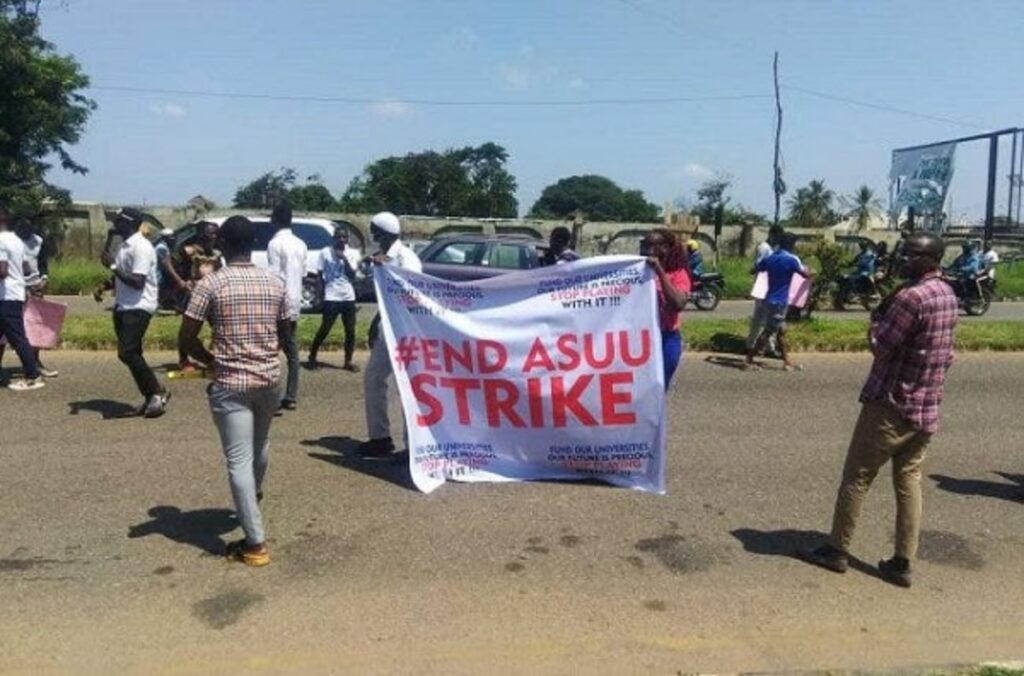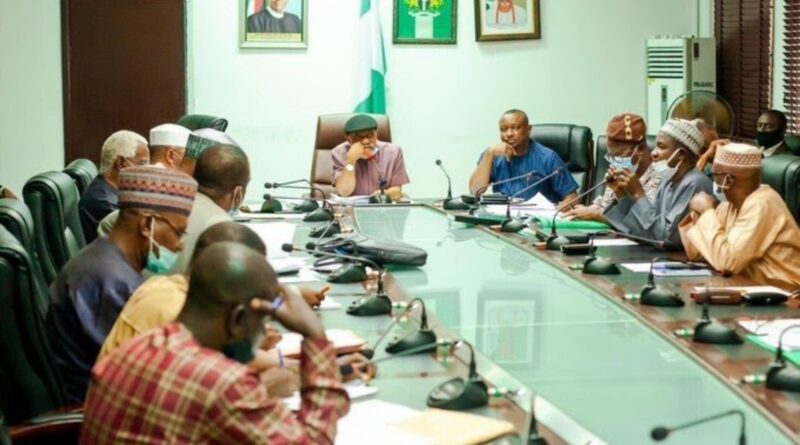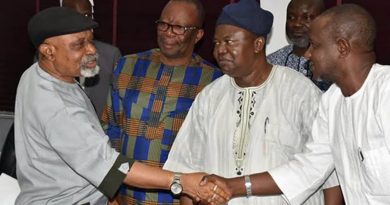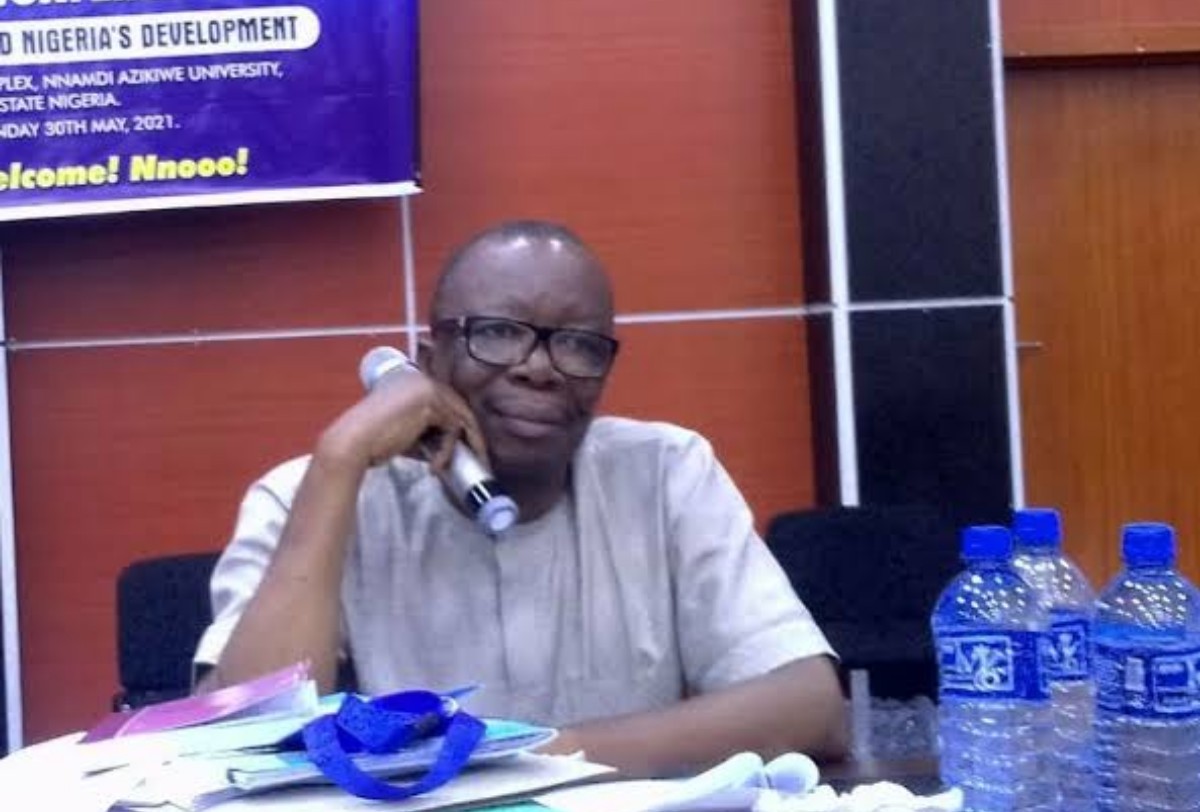Options on the titanic ASUU/government battle
By Jibrin Ibrahim
Nigeria’s national educational policy is based on the premise that the greatest investment that a nation can make for the quick development of its economic, political, social, and human resources is education.
The Nigerian Constitution defines education as a public good that government should provide. Article 18 of the Constitution states that:
18(3) Government shall strive to eradicate illiteracy; and to this end Government shall as and when practicable provide:
(a) free, compulsory, and universal primary education;
(b) free secondary education;
(c) free university education; and
(d) free adult literacy programme.
In pursuance of this policy, university stakeholders have held successive governments to this constitutional provision.
The government however does not provide sufficient funds for universities to provide the quality academic and research output expected from them. The result has been a steady decline in the quality of the university system. This is the context that set the stage for the Academic Staff Union of Universities (ASUU)/government battle.

Over the past forty years, ASUU strikes have become part of Nigeria’s national strife and trauma. Enormous numbers of working days are lost regularly due to the strikes.
The numbers of days during which Nigerian universities were closed due to ASUU strikes under the Fourth Republic are staggering: 1999 – 150 days; 2001 – 90 days; 2002 – 14 days; 2003 – 180 days; 2005 – three days; 2006 – seven days; 2007 – 90 days; 2008 – seven days; 2009 – 120 days; 2010 – 157 days; 2011 – 190 days; 2013 – 150 days; 2016 – seven days; 2017 – 35 days; and 2018-2019 – 97 days.
In 2020, scores of days were lost to strike, from March 23 to December 23, although much of it coincided with the lockdown restrictions associated with the COVID-19 pandemic. This year, 2022, ASUU has embarked on a strike from February 14 till date, making it 11 days since the strike began.
For ASUU, the power of strikes is the only thing that forces the government to provide additional resources for universities, so they believe they are using this power in pursuit of the public good.
The power of ASUU is clear. By closing down public universities and sending students home for months, parents are forced to put pressure on government to accept ASUU demands. During these strikes, academic staff do not work and Nigerian law is clear in its “no work, no pay” policy.
Government always says that they will not pay academics for the periods they are on strikes, however, after each and every strike, the government has been forced to pay the backlog of staff salaries.
Meanwhile, many academics use the period of strikes to teach in private universities and get paid, so that children of the elite get a good education. Academics now love these strikes because it has objectively become a period of savings for their personal projects.
Each strike ends with an agreement in which government commits to providing significant additional financial resources for the universities but never pays up all that it promises. However, there is always an increase in allowances of staff members after each strike, so once again, the staff wins.
The reality is that the organization of a very long strike every other year benefits ASUU and its members but it is very harmful to students. For decades, public universities have not covered the syllabuses because of the after-strike rush to examinations.
Students in public universities also spend a much longer time to graduate. We are churning out doctors, engineers, and political scientists who have not met the course coverage required to justify their graduation. The strikes are destroying our universities from within and after forty years of this phenomenon, we cannot just continue saying it is the fault of the government.
ASUU is right that the government promises but never delivers, so they should be held accountable for what they have promised. The fact of the matter, however, is that the Nigerian government is irresponsible and signs deals it has no intention of complying with, which affects all stakeholders within and outside the education sector.
The struggle for a responsive and accountable government is a much larger one and goes far beyond the ASUU struggle. ASUU must go into introspection and learn what every trade unionist knows – the gains in the struggle are never total; they are always incremental.
The key question in the struggles between ASUU and successive governments has been financing and, constitutionally, financial matters are addressed in budgets. Budgets are laws, which our Constitution says must be fully implemented by all governmental agencies.
We know however that since 1999, no budget of any government ministry, department, or agency (MDA) has ever been fully implemented. The Federal and State universities are government agencies and struggles and strikes to increase their budgets do not translate into improved funding.
The monies may be appropriated but most of it would not be released, mainly because it is not available and sometimes other priorities, such as security provisioning, are considered more important. ASUU’s persistent demands that the agreements it reaches with the government must be fully implemented is correct but does not reflect current practices.
It is despicable that government commits itself to budget line items it cannot deliver but the significance of this is that the real crisis is not one of commitment to tertiary education but a generalized incapacity of the government to deliver on all its commitments.
Given this culture of academic corruption, should the Nigerian government decide today to grant all the financial demands of the universities, there will be no fundamental improvement in their quality because of the internal rot that has destroyed them from within. The failure of ASUU is its refusal to start addressing these internal problems of academic corruption and collapsed standards.
The problem around the titanic ASUU/government battles is that it has been reduced to an ASUU Charter of Demands, much of which is about money. The government has not raised issues it should have about the rapidly declining fall of standards in our universities. The fall is closely associated with rising corruption in the academy.
Academic ethics have taken a hard blow as lecturers exploit their students through the sale of hand-outs and sexually harass their female students. The academic principle of peer review has declined and a significant part of university professors are promoted on the basis of self-publication.
So many “academic” journals in Nigeria that are supposedly peer-reviewed, demand and receive upfront monetary payments from prospective authors. So many Nigerian “professors” have very few, and many have no citation counts in professional academic measures of quality.
It is easy for ASUU to pick on Minister Pantami but how many professors would survive the checks they applied to the minister. It was this crisis of academic standards that led my good friend, Professor Ibrahim Bello-Kano of Bayero University to announce that the Nigerian university system has collapsed beyond redemption to ‘Super Secondary Schools’ and there is no hope for recovery.
The Nigerian elite have demonstrated their lack of confidence in the university system by sending their children abroad for tertiary education. A few send their children to private Nigerian universities. This means that the children of the poor are the main beneficiaries of public university education and they are not competitive, in comparison to the foreign-trained children of the elite.
Essentially, the Nigerian state has abdicated its responsibility for the qualitative development of the children of the masses and created a situation in which social mobility has been cut out for them as a result. Increasingly, high-paying jobs are open mainly to foreign-trained Nigerians.
This larger conversation about declining quality in our universities and class discrimination against the children of the masses must be added to the charter of demands.
A professor of Political Science and development consultant/expert, Jibrin Ibrahim is a Senior Fellow of the Centre for Democracy and Development, and Chair of the Editorial Board of PREMIUM TIMES.








